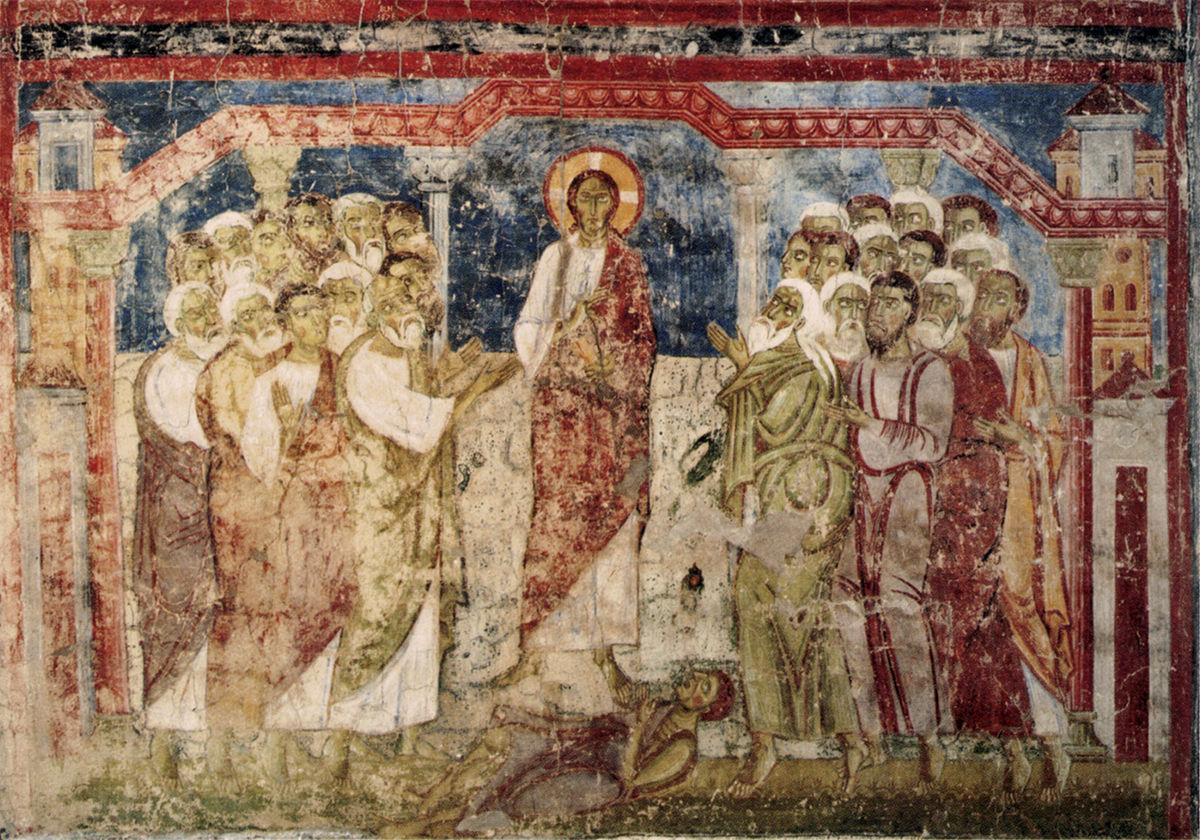Jesus Fulfillment of Isaiah 61
14 Jesus returned to Galilee in the power of the Spirit, and news about him spread through the whole countryside. 15 He was teaching in their synagogues, and everyone praised him.
16 He went to Nazareth, where he had been brought up, and on the Sabbath day he went into the synagogue, as was his custom. He stood up to read, 17 and the scroll of the prophet Isaiah was handed to him. Unrolling it, he found the place where it is written:
18 “The Spirit of the Lord is on me,
because he has anointed me
to proclaim good news to the poor.
He has sent me to proclaim freedom for the prisoners
and recovery of sight for the blind,
to set the oppressed free,
19 to proclaim the year of the Lord’s favor.”
20 Then he rolled up the scroll, gave it back to the attendant and sat down. The eyes of everyone in the synagogue were fastened on him. 21 He began by saying to them, “Today this scripture is fulfilled in your hearing.”
Observations & Reflections
 Jesus, having been called, tested, and returned home, began to be the “master of both worlds” as the hero’s journey would describe. However, Luke did not setup and complete the hero’s in just one chapter. Rather, he created a mini version of it that is inside of a larger journey. The beginning of the main journey starts in chapter 9, when he journeys to Jerusalem.
Jesus, having been called, tested, and returned home, began to be the “master of both worlds” as the hero’s journey would describe. However, Luke did not setup and complete the hero’s in just one chapter. Rather, he created a mini version of it that is inside of a larger journey. The beginning of the main journey starts in chapter 9, when he journeys to Jerusalem.
The interesting part about Jesus when returns home is that He uses Isaiah 61 to illustrate that He is the messiah. As the messiah He is to bring the good news to the poor, proclaim freedom to the prisoners and sight to the blind, and set the oppressed free. I can only imagine that the audience was less than convinced about such a claim as they knew Jesus before He reached adulthood. Moreover, they were likely praying for a military leader like Judas the Galilean or Mattathias the Maccabean who led the revolt against the Greeks. Why would God send the messiah to proclaim good news when they were in bondage to the Romans?
In fact, I can imagine that the audience members that knew Isaiah well would be wondering why Jesus left out the rest of the messianic prophecy, which seems to indicate that Jesus needed to be different than what He was describing. The 2nd verse of Isaiah does not end with “to proclaim the year of the Lord’s favor.” It keeps going.
2 to proclaim the year of the Lord’s favor
and the day of vengeance of our God,
to comfort all who mourn,
3 and provide for those who grieve in Zion—
to bestow on them a crown of beauty
instead of ashes,
the oil of joy
instead of mourning,
and a garment of praise
instead of a spirit of despair.
They will be called oaks of righteousness,
a planting of the Lord
for the display of his splendor.
4 They will rebuild the ancient ruins
and restore the places long devastated;
they will renew the ruined cities
that have been devastated for generations.
They were clearly expecting that the messiah was going to restore the nation of Israel and restore the land. It’s natural that they were a bit skeptical. However, with the number of miracles He performed one would think they would might have been more convinced. But like the Mesopotamian hero stories, it is this rejection at home that will propel Jesus on the journey He will be required to take in order to become the real hero that will save mankind from their sins.
[Featured image is an 11th century fresco titled “Exorcism at the Synagogue in Capernaum“.]
